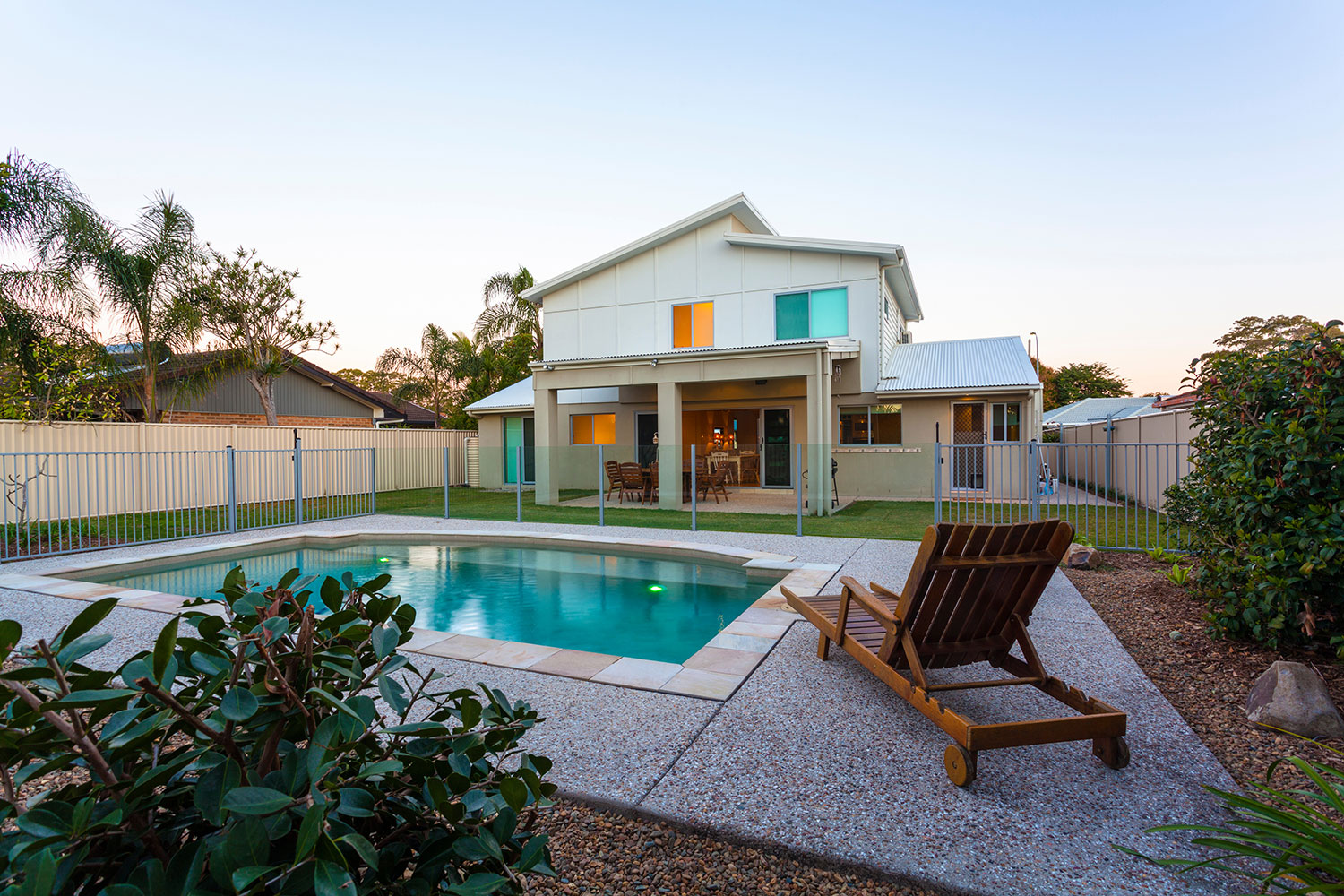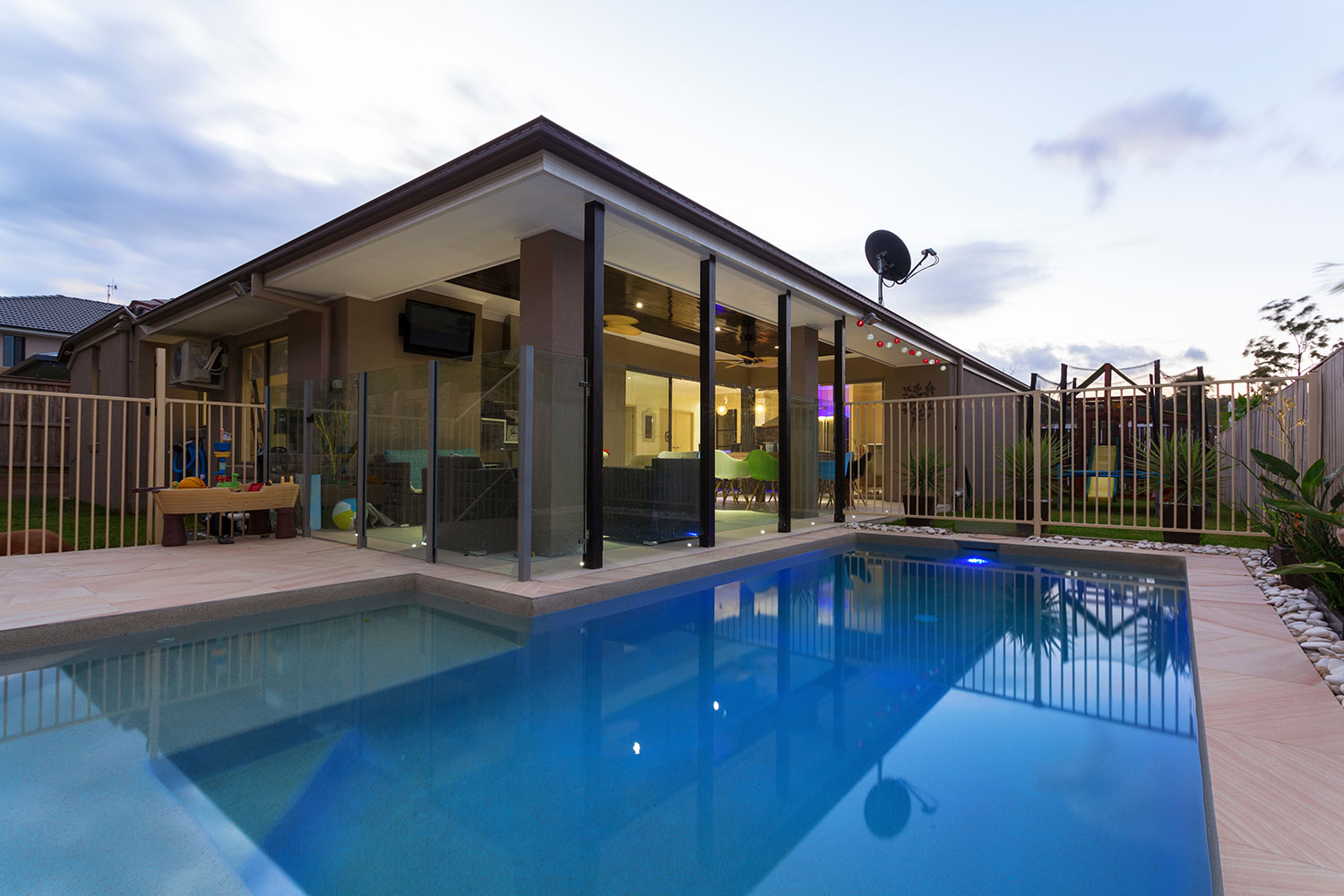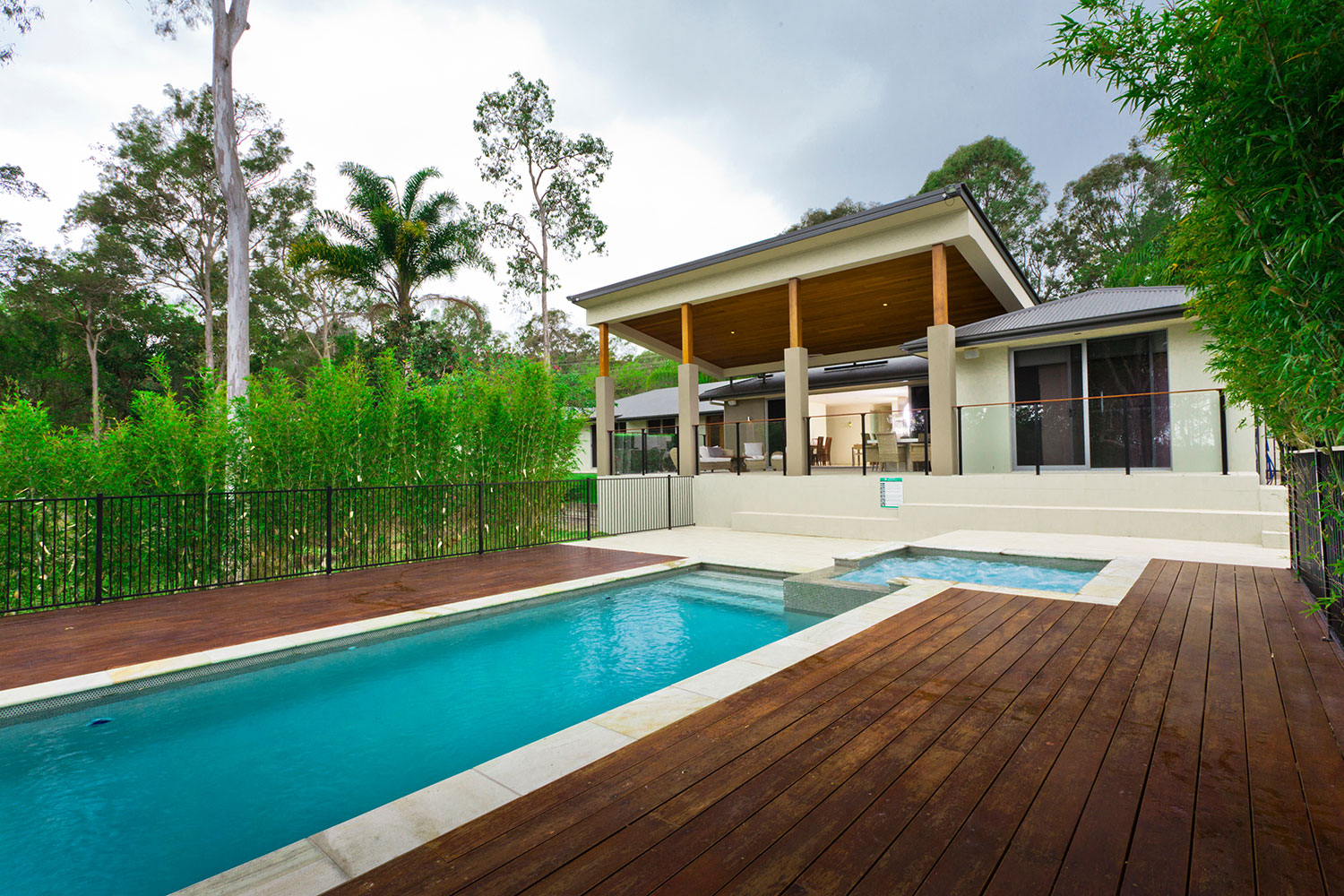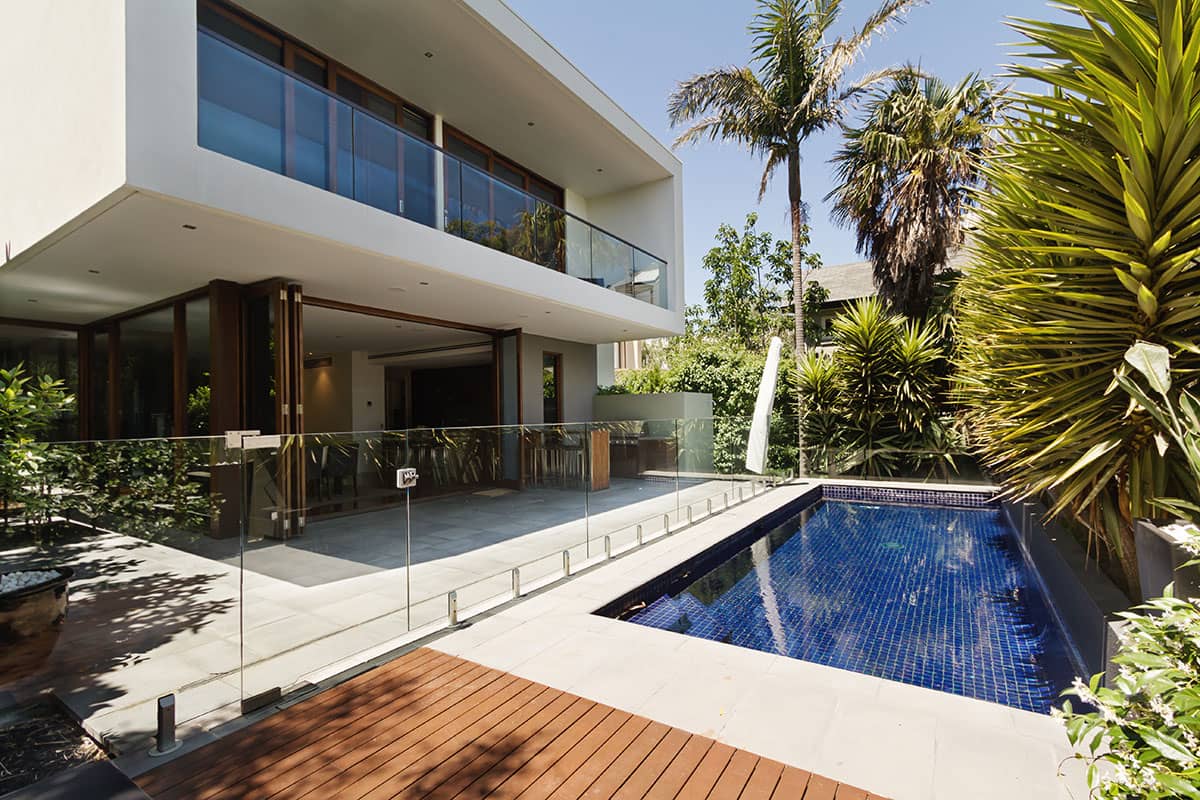Our expert pool installers have been helping Perth homeowners design dream pools for over a decade.
We know the planning process can be exciting and overwhelming all at once. We put together these steps in designing a pool to help simplify the process and ensure you consider all the important factors.
Our pool design guide will cover:
- How to determine a pool type and size based on usage
- Cost of installing a pool and determining a budget
- Space and location considerations
- Local safety requirements in WA
- Council requirements and boundaries
- Restrictions and factors that affect the installation process
- Finding an experienced Perth pool builder
Determine How You Will Be Using the Pool
The first step in designing a pool is determining how you plan to use it. Many of our customers tell us that this step is the easiest and the most fun!
Deciding how you will be using the pool will help dictate its size, shape, depth, and material.
Here are some questions and considerations we use to help our customers decide how they plan to use the pool:
- Do you envision a lot of floating and relaxing in the pool or reading a book poolside? If this is your primary plan, a custom plunge pool may be ideal for you.
- Do you look forward to watching your family doing cannonballs and serious splashing? If so, you may want to consider a shallow end for kids to easily touch as they play and gain confidence in the water and a deeper end for some epic cannonballs.
- Do you primarily plan to use your pool for exercise and laps? A shallow, longer pool may be perfectly suited to your needs.
We also recommend considering the space surrounding the pool. Do you have landscaping plans or want a BBQ area? Do you want a lounge area or poolside dining?
Our team is here to help with a free, thorough site inspection to assess your site’s unique characteristics and make sure your design dreams are suitable for your space.
Determine Your Budget
Determining a budget is an obvious step in designing a pool but we know certain costs can come as a surprise to homeowners.
Keep these factors in mind when planning a pool budget as these will all affect the cost of your pool:
- Installation and excavation
- The length, width, and depth of the pool
- Type of pool (learn more in our guide about Concrete vs. Fibreglass Pools)
- Shape of the pool
- Pool fencing, barriers, and gates
- Decking
- Surrounding landscaping
- Electricity and plumbing
- Site prep expenses (trees getting cut down, levelling, or rocky ground getting smoothed out)
- Heating
- Ongoing maintenance costs (i.e. pool chemicals, new filters, etc.)
Use our online Pool Cost Calculator tool or contact us for a free, no obligation quote to get an exact estimate.
Evaluate Available Space and Location
You can dream as big as you want but your space and location will significantly affect the ability to bring your pool design to life.
Fortunately, even with limited space we’ve helped many homeowners still enjoy the luxury of a backyard pool. Our custom plunge pools are ideal for small backyards or setback limitations. We can tailor our plunge pools to fit almost any yard, allowing homeowners to enjoy a refreshing dip in the Perth sun.
Along with determining how much usable backyard space you have, we also recommend considering these questions:
- How will the pool be oriented? Will it be shaded during part of the day?
- What is the wind exposure like?
- Is there room for filtration equipment or a heater?
- Is there room for nearby storage for pool floats, life jackets, etc.
- How private will the pool area be?
- How accessible will the pool be from inside your house?
Research Pool Safety and Laws in WA
Laws in WA mandate the installation of a compliant safety barrier for private pools. These laws were created to reduce the risk of drowning by restricting access to pool areas.
Check with your local council to determine safety requirements in your area. Many councils also require homeowners to submit pool plans and specifications for approval.
Along with following local laws and regulations, it is important to educate yourself on pool safety.
This is not an exhaustive list, but here are some key pool safety tips:
- Never leave a pool gate open or prop it open
- Make sure your pool gate is self-latching and self-closing
- Keep your pool gate maintained and in proper working condition
- Always designate someone to actively supervise children in and around pools — don’t assume that just because a lot of adults are around someone is keeping an eye on children in or near a pool
- Do not dive in a pool unless it has a specified safe diving area
- Swim sober
- Do not swim alone
- Install anti-entrapment drains
- Remove steps or ladders when the pool isn’t being used
- Actively supervise children who are in the water or within arm’s reach of the water
- Do not rely on older children to supervise younger kids in or around a pool
- Keep pool barriers and gates clear of climbable objects
- Consider having a pool gate alarm and water alarm installed
- Don’t forget about pool safety for pets — have a working gate, a perimeter or water alarm, safety covers, and easily accessible rescue equipment on hand
- Know what to do in a water emergency
You can learn more about safety and pool laws here: Rules for Pools and Spas – a simple checklist for residents. This pool safety checklist was created by the Government of Western Australia Department of Mines, Industry Regulation and Safety and is an excellent resource for homeowners.
Understand Council Requirements and Boundaries
It’s easy to get caught up in the fun aspects of the design process, such as the shape you want your pool to be, the depth, and special features. However, it is important to be aware of restrictions and local laws so you aren’t met with any surprises along the way.
Every Australian state has strict swimming pool laws pertaining to fencing, approval, permits, and restrictions. Local councils also have restrictions and permit processes that must be closely followed.
To meet boundaries and council regulations, the location or size of your pool may need to be reassessed.
Our team will evaluate the site according to state laws and your local council requirements, ensuring your pool will be compliant with all local standards.
Research Restrictions For Your Home
Here are some important considerations regarding your space and restrictions when planning and designing your pool
- Access for Builders — Is your site easily accessible for large equipment and vehicles? Or are there access restrictions or steep slopes that will impede vehicles from entering your yard easily or safely?
- Utilities — Where are your utilities located? There needs to be adequate space away from power and water utilities.
- Septic Tanks — Local regulations in Australia require setbacks from septic tanks when installing a pool. Check with your local council to determine septic setbacks.
- Trees — Large trees or stumps may need to be professionally removed if they interfere with where the pool will be placed. Also, we recommend considering shading. Do you want a portion of your pool shaded? Or do you want full sun throughout the entire day?
- Rocks — Rocky ground may require extra time and drilling equipment to smooth out and prepare the space.
What Are the Next Steps In Designing Your Pool?
We know there are a lot of considerations when planning a pool. Our accredited Perth pool builders are here to take the stress out of the planning process! Leave the site restrictions, site prep, local regulations, boundaries, and council requirements to us and you can focus on the fun parts of planning!
We’ll work closely with you every step of the way, from your free initial quote to your first float.
Our experts install custom pools that are tailored to your space, goals, and needs and compliant with all local regulations and pool safety laws. As Perth’s leading pool builders, our innovative concrete fibreglass pools are redefining the meaning of backyard luxury.
Contact our team with questions or to schedule your free on-site quote and let’s start planning your dream pool!




